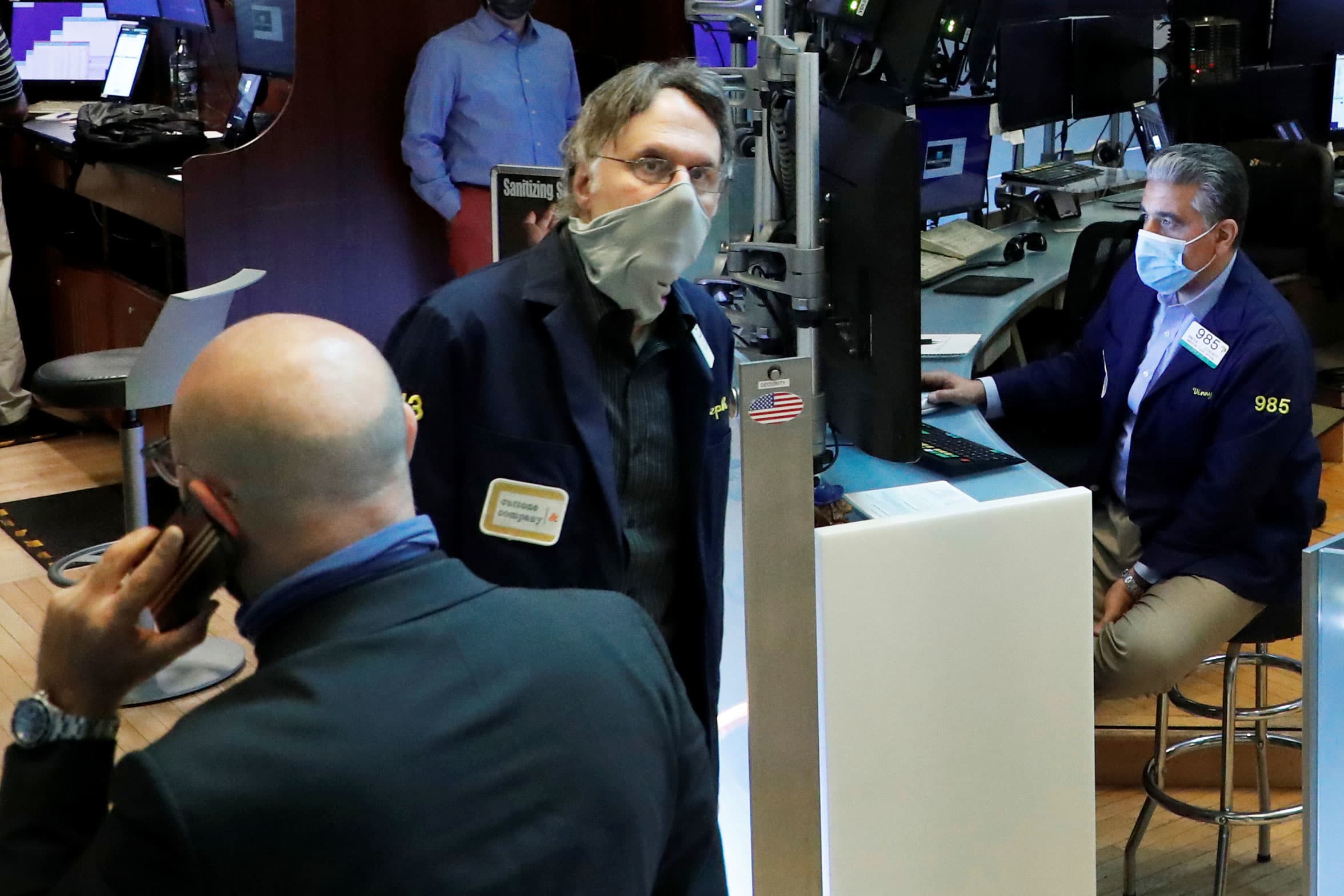
Traders wear masks as they work on the floor of the New York Stock Exchange as the outbreak of the coronavirus disease (COVID-19) continues New York, May 27, 2020.
Lucas Jackson | Reuters
U.S. tech megastocks spearheaded a global market sell-off in September, and a key underlying factor could have been a move higher in real interest rates, according to Barclays Wealth Chief Investment Officer Will Hobbs.
The Nasdaq, which derives around 40% of its value from a small number of technology stocks, fell more than 5% in September, while the S&P 500 dropped nearly 4%.
Much of the price activity throughout the month was driven by volatility in the shares of tech titans such as Amazon, Apple, Alphabet, Microsoft, Netflix and Tesla. These stocks had been the key driver of U.S. market outperformance since March’s crash, which saw Wall Street surpassing record highs despite continued uncertainty about the pandemic and its impact on the real economy.
Real interest rates are a measure of interest rate that removes the effects of inflation to reflect the true cost of funds to the borrower and the real yield to lenders or investors.
Speaking to CNBC via telephone last week, Hobbs suggested that a move higher in real interest rates, particularly in the U.S., had coincided with the sharp downturn for Silicon Valley.
“One of the theories around the current context for markets is that a lot of it is quite dependent on ever-lower real interest rates, because if you think about the valuation of some of these tech titans, think about the shape of their cash flows, they’re sort of like long-duration bonds,” Hobbs said, adding that investors could to some extent project cash flows like annuity revenues.
He argued that much of the popularity of tech growth stocks, those which generate substantial and consistent cash flows while increasing earnings and revenue at a greater pace than their peers, was down to the fact that real interest rates had been steadily falling in recent years.
Although the conditions for a sustainable rise in real interest rates are not present yet, Hobbs suggested that a move higher should not be ruled out given the unprecedented policy environment created by central banks around the world.
Avoid the vortex
“The industry has long been obsessed, and investors are understandably obsessed with the idea that you can protect downside and capture equity upside — that is like the Holy Grail of investing,” Hobbs said.
“In a sense there are parts of the market that have kind of delivered on that promise, particularly some of these tech titans, who have really benefited economically or structurally from the way this pandemic has played into their business models, and they were already the companies that had to a certain extent apparently found a cure for corporate age.”
However, he cautioned investors against extrapolating from the recent past, especially given that there have been relatively few recessions throughout history against which to attempt to analyze this one.
“One of the big concerns I would have is that investors have allowed, or will increasingly allow, or are already allowing, their portfolios and their multi-asset class batch of investments to get sucked into an ever smaller vortex of recent winners, from gold to tech titans to those kinds of names, in the assumption that the future looks a bit like the recent past,” Hobbs said.
He highlighted that if thinking of economic environments as “regimes,” the last few years have been characterized by “a certain regulatory tolerance, ever lower inflation and ever lower real interest rates,” with assets like gold and tech giants performing well in those conditions.
Big tech regulation is back in focus this week, with the House Judiciary subcommittee on antitrust releasing a report Tuesday into the market dominance of Amazon, Facebook and Google.
“However, history is littered with examples of changes in the regime, be it political changes and the sociopolitical backdrop, macroeconomics or indeed regulatory, and so the message to investors really is to make sure that you don’t let your portfolio or your batch of investments get sucked into that ever smaller, more concentrated batch of recent winners,” Hobbs advised.
“You have to own some losers as well, because you have to plan for a future that isn’t just a continuation of the recent past, as so often isn’t the case.”



